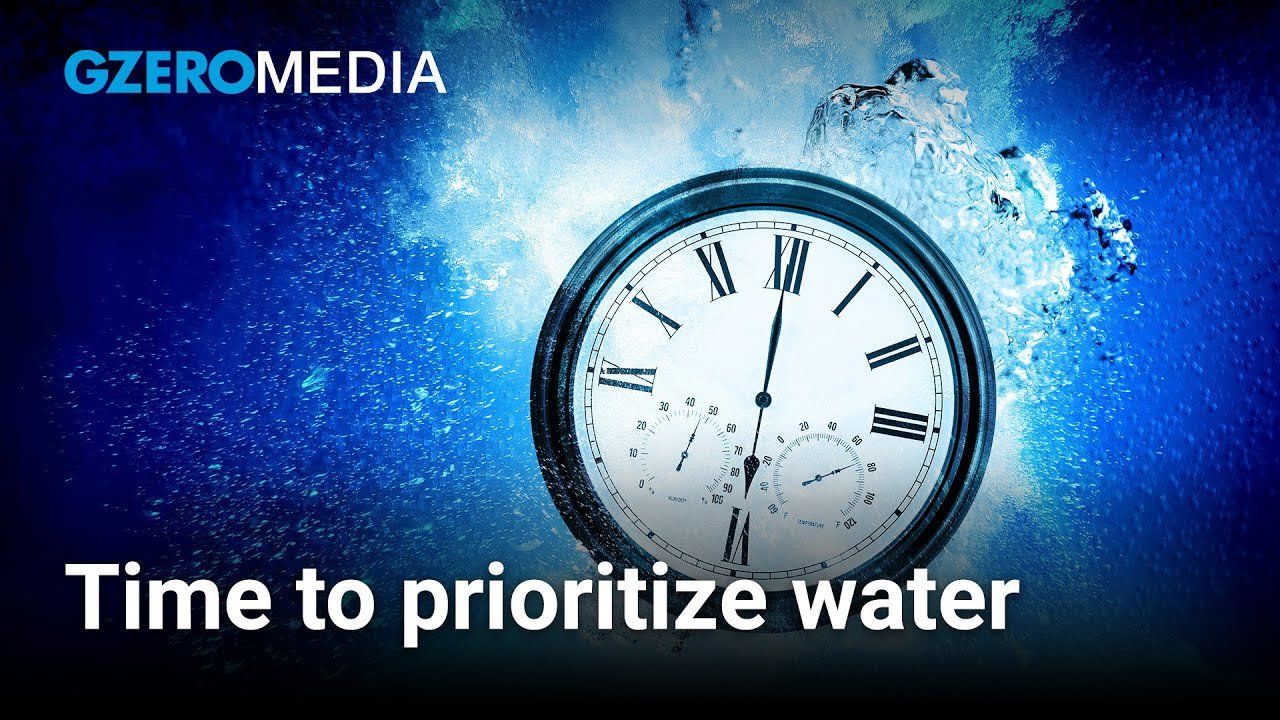Why did it take over twenty years for the UN's marquee climate conference to start talking about water? "It's undervalued and therefore, it's not getting the attention it deserves because people don't see the actual value addition of engaging with it," says James Dalton of the International Union for the Conservation of Nature.
"Roundabout 90% of global water policy is out of date," says James Dalton of the International Union for the Conservation of Nature. "We're effectively 40 years behind where we need to be on the policy calendar when it comes to being able to better manage our water resources."
He says that lack of attention has led humanity to "abuse the resource," overtaxing existing freshwater resources and exposing them to pollution. And as climate change threatens to create an even more dangerous and volatile water cycle, he asks, "can we get the direct action happening quickly enough before we really start to feel the pain of this?"
Dalton spoke at a GZERO Live event organized by the Sustainability Leaders Council, a partnership between Eurasia Group, GZERO Media, and Suntory.
Watch the full livestream conversation: The global water crisis and the path to a sustainable future
More For You
Most Popular
In an era when geopolitics can feel overwhelming and remote, sometimes the best messengers are made of felt and foam.
The Hungarian election is off to the races, and nationalist Prime Minister Viktor Orbán is facing his most serious challenger in 16 years.
